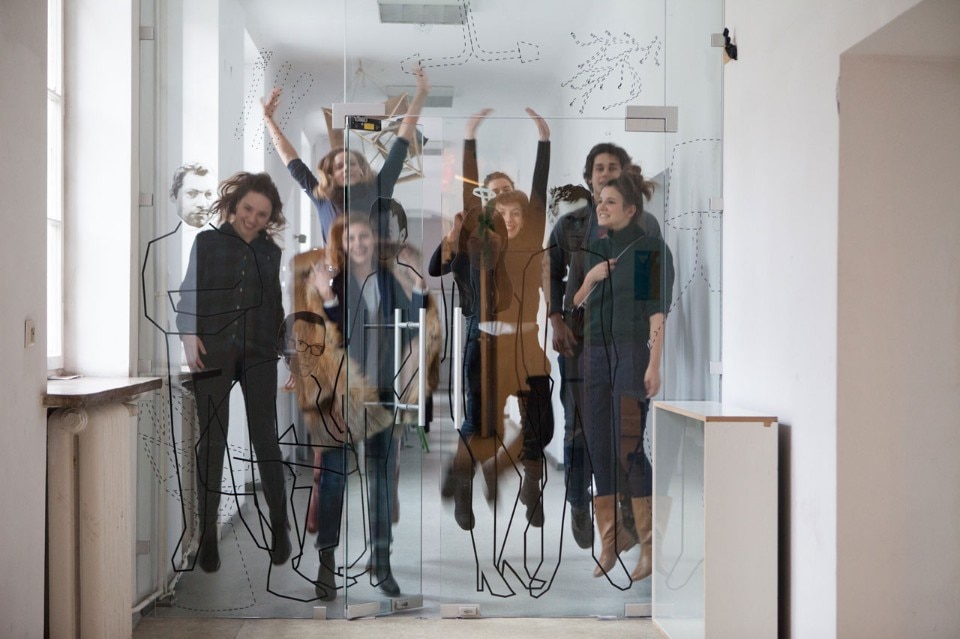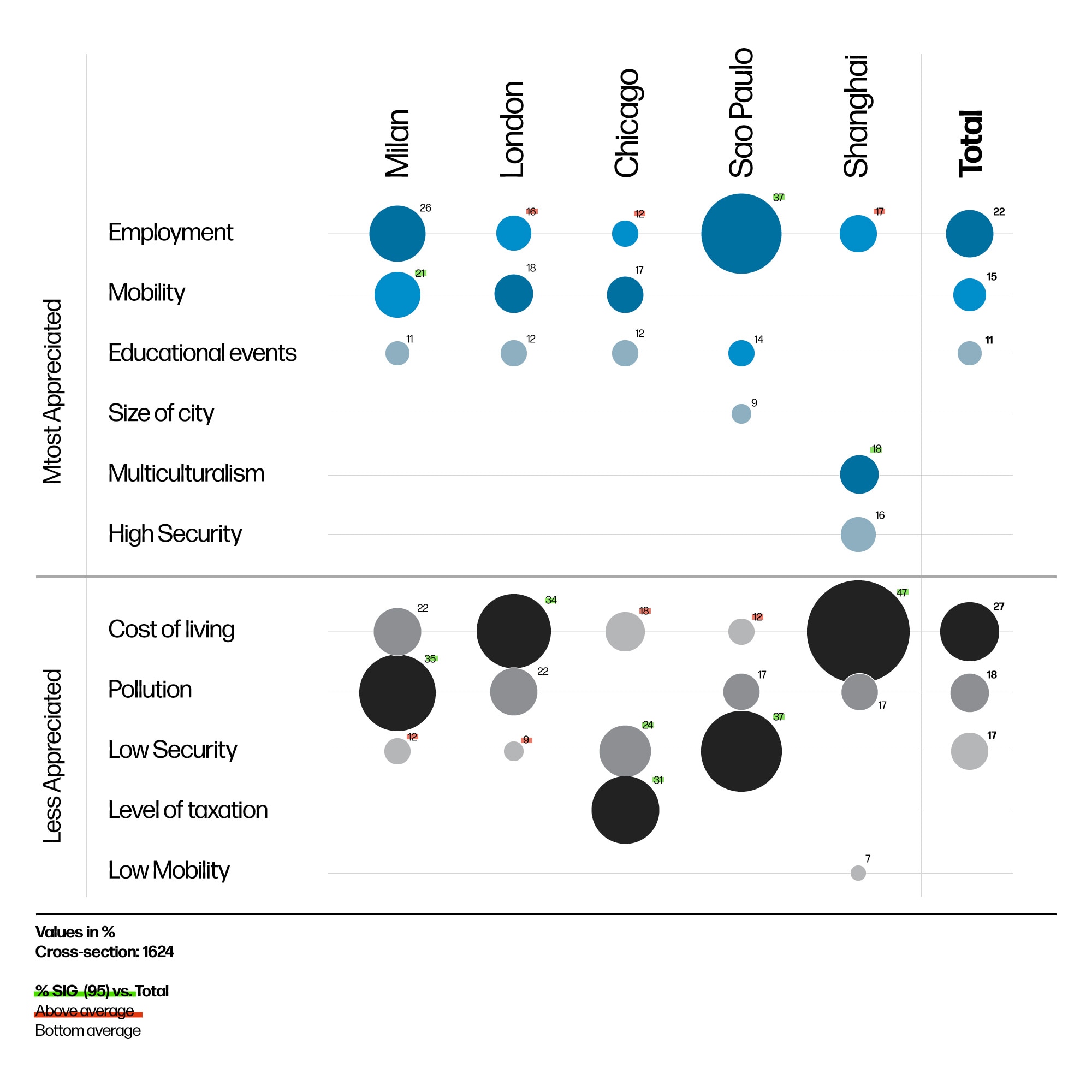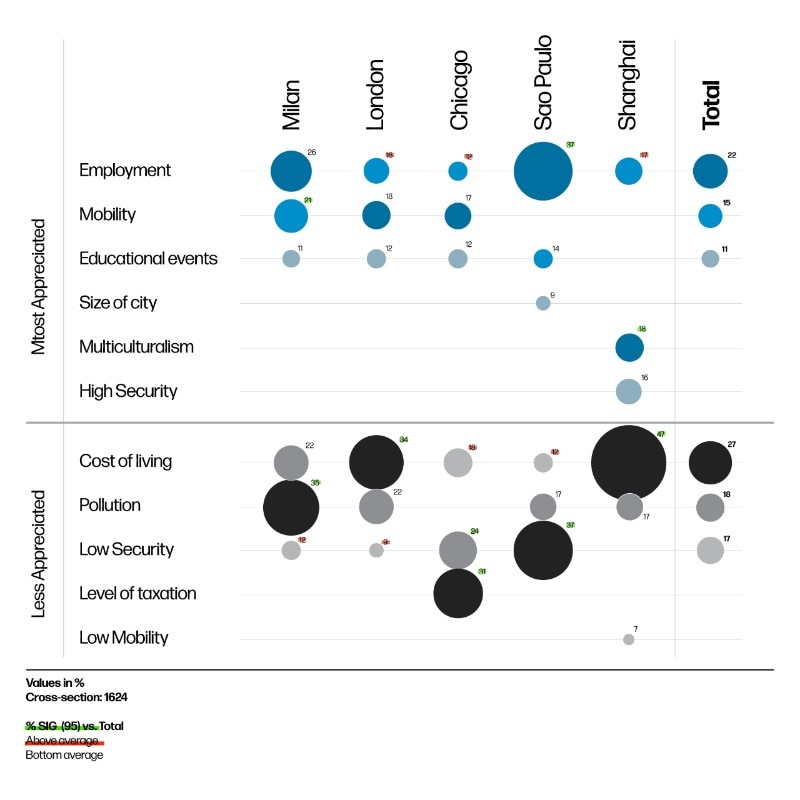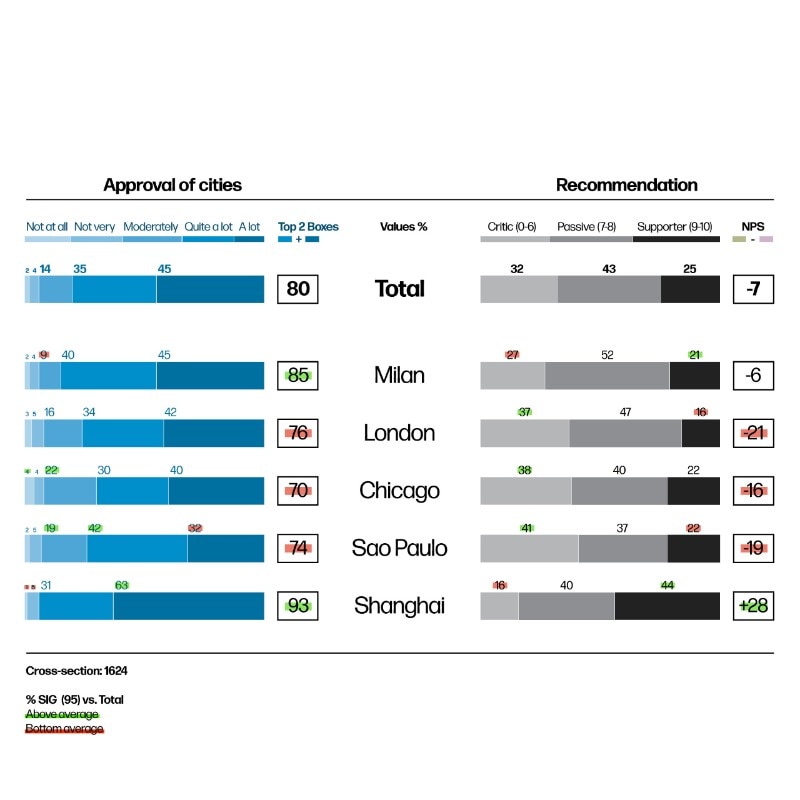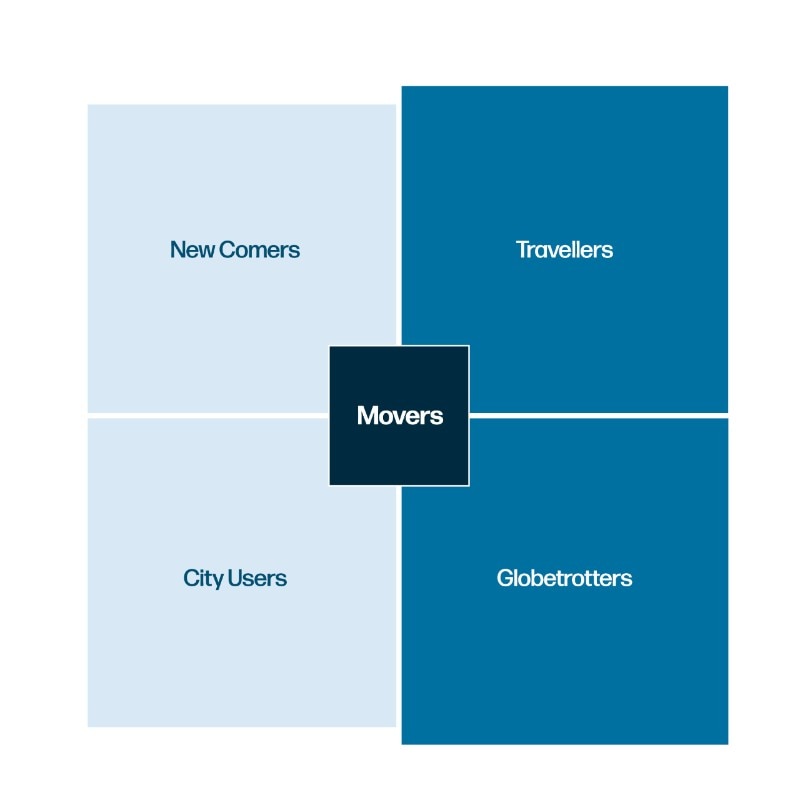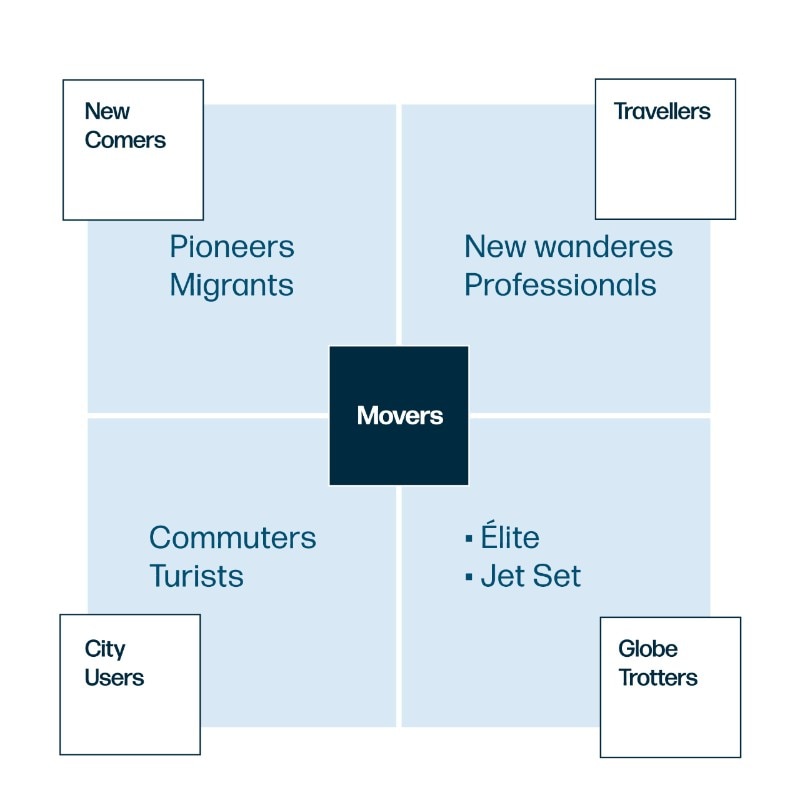The Newcomers. These are young people in search of new opportunities. They have low purchasing power and come from highly diverse backgrounds. The Newcomers are economic migrants, refugees, “start-uppers” and pioneers. They are excluded from civic participation, but are seeking inclusion.
The Travellers. These are young people with substantial professional capacities and talents. They are attracted to the city by careers with high socio-economic status. The Travellers include professors, intellectuals and employees of public and private institutions. They direct their strong purchasing power toward recreational activities, culture and sport. They entertain a sense of belonging to multiple places, but over time they tend to put down roots in world capitals. This group is partially active/involved in the community.

The Globetrotters. This is an international elite typically employed in finance and large companies. Their very strong purchasing power is aimed at luxury goods and the broadening of their cultural baggage. As citizens of the world, they are not attached to the actual circumstances of the place in which they choose to live, and uninterested in a sense of belonging to the locality.
The City Users. This group has a purely functional relation to the city. It includes tourists, students and commuters. They have a detached and pragmatic approach to the city. Their rather weak spending potential is aimed at specific goods. Main interests include mobility and easy accessibility to services and cultural offerings. Civic participation is not one of their priorities.
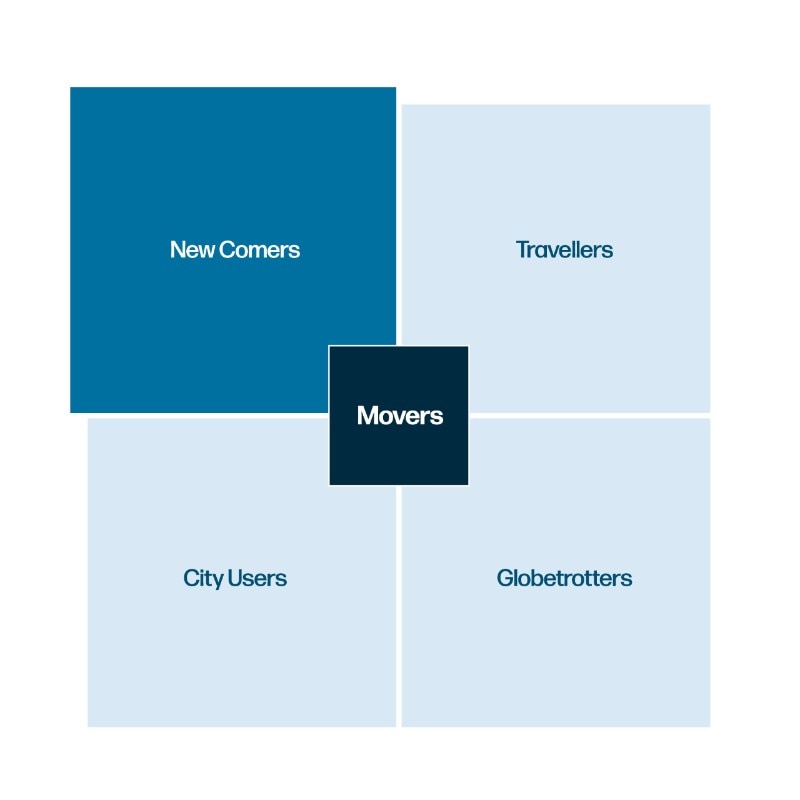
Based on the four profiles, we can distinguish the characteristics that a city must have to welcome movers with low potential (linked to salary, culture and spending ability) on the one hand, and attract movers with high potential on the other.
The capacity to welcome is important mainly to the Newcomers and to a much lesser extent the City Users, who often have no optional cities to choose from. Their needs are accessibility, adaptability and inclusion regarding fundamentals such as housing, services, training opportunities and transportation. Civic and economic participation possibilities are important here.
Attracting the Travellers and the Globetrotters implies knowing how to meet their requirements for balance, flexibility, freedom and selectivity by focusing in particular on the professional and institutional spheres, quality recreation opportunities and differentiation of the offerings.
The survey conducted by Nielsen shows that 80 per cent of citizens of the five metropolises analysed are satisfied living in their city, but only one in four would recommend it to loved ones. The highest level of enjoyment is found in Shanghai, the only city where the number of people who would recommend it is larger than the number of people who would not.
As for the reasons for this appreciable satisfaction, the main reasons are job opportunities, followed by the ease of getting around, and the city’s cultural offerings. The most unpopular aspects are found to be the high cost of living, pollution and lack of safety.
In line with the information that emerged from the interviews with the six urban experts and the quantitative questionnaires, the subject of public transport is a hot topic online, as well. What follows is a selection of tweets from Greater London that reveal positive and negative aspects of the public transport there.
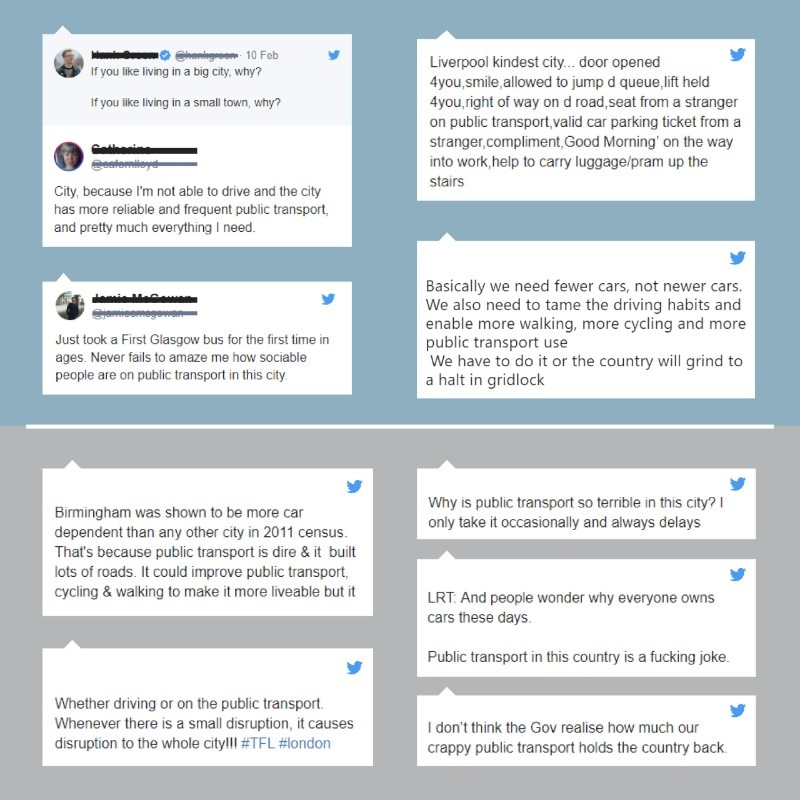
Opening image: Akademie der bildenden Künste Warschau, Fakultät für Design (Debüt) - Design Emergency Room, Vienna Design Week 2018
- Conference:
- domusforum 2018. The Future of Cities
- Opening dates:
- 11 October 2018
- Location:
- Teatro Franco Parenti
- Address:
- via Pier Lombardo 14, Milan
- Registrations:
- closed




